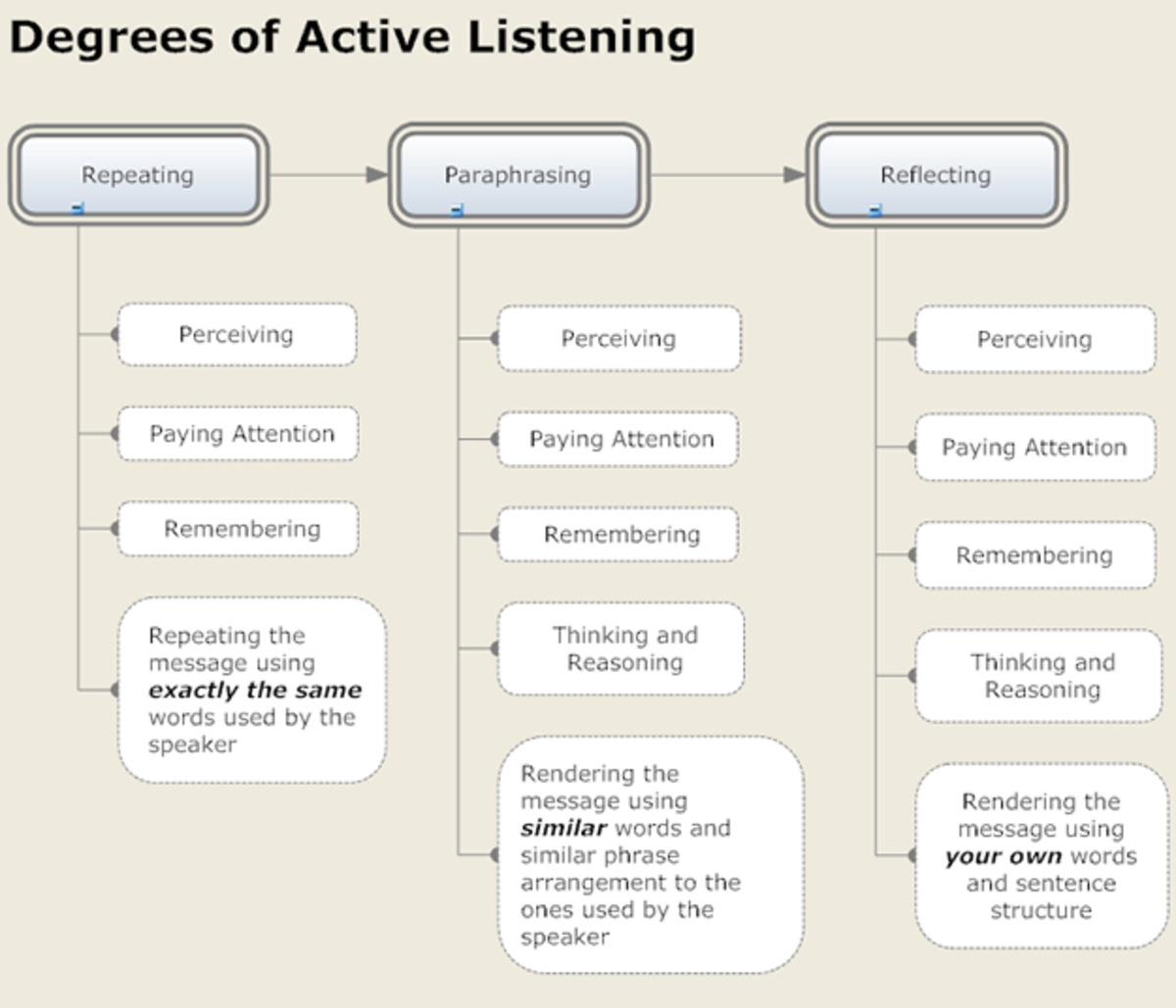Zen of Listening

The commonly used word Zen means living in the present and experiencing the reality fully. It also means experiencing fully the present and delighting in the basic miracle of life itself. Listening to someone so mindfully that the very act of listening becomes a means to make the listener experience being in the Now. Therefore, the act of listening can make the listener experience delight in what is being said. So, when both the speaker and the listener enjoy the act of speaking and listening, oblivious of what is happening around them, they both are experiencing Zen.
In today’s fast-moving world, we need to connect more efficiently to people and ourselves. It is possible to train oneself to enhance thinking, learning and communication skills to new levels of mastery. Just like speaking, listening is also an art which can be mastered by everyone. One can learn the skill to become a mindful listener. This powerful skill can make major changes in the way an individual can process information, negotiate, and lead. A family counselor will agree that the key to successful relationships and a good marriage is listening.
Are you listening to truly hear, acknowledge and consider a perspective that may not be your own or are you looking for the critical flaw? How you answer this question determines if you are a good listener or not.
"The greatest compliment that was ever paid to me was when someone asked me what I thought, and attended to my answer."
Henry David Thoreau
Why is one a poor listener?—
We live in a world that is full of distractions, which include noise, mobiles phones, and beepers and so on. We also have so many internal distractions which include our old beliefs leading us to make critical judgments and comments, and old grudges leading us to even up the old scores with people. Stress and worry also contribute to poor listening; so does the hastiness to do many things together. In fact, the internal distractions are quite powerful and influence our listening skills.
To improve our listening, we will have to reduce the level of internal noise. We will have to set aside our old beliefs and grudges so that we become mindful listener without being judgmental. In the true spirit of Zen, we will have to transcend the egoic self before listening to somebody.
How to become a good listener?—
- Stop speaking—When somebody is talking, don’t interrupt but just listen. When the other person has finished talking, you may speak to clarify the doubts if any.
- Prepare to listen—One has to relax mentally and physically so as to focus on the speaker. The mind is always thinking incessantly so we will have to put other thoughts out of the mind in order to concentrate on the messages that are being communicated.
- Show interest in the speaker—Focus on using inviting body language for the speaker to notice. Let the speaker feel free to speak. Don’t use gestures or expressions to discourage the speaker. Maintain eye contact and show that you are listening and understanding what is being said.
- Remove distractions—Don’t shuffle papers, look out of window or pick the finger nails. They disrupt the listening and send massages to the speaker that you are bored or distracted.
- Have an open mind—Let go of pre-conceived ideas. Look at issues from their perspectives. If the speaker says something that you disagree with, then wait and construct an argument to counter what is said but keep an open mind to the views and opinions of others.
- Have no personal prejudice—Be impartial. Don’t become irritated by the habits, mannerisms or regional language accents of the speaker. Everyone has a different way of speaking. Focus on what is being said and try to ignore the style of delivery.
- Be patient—Let the speaker continue to take time. Sometimes it takes time to formulate what to say and how to say it. Never interrupt or finish a sentence for someone.
- Focus on content—Focus on what the speaker is saying. Don’t pay attention to the number of times the speaker clears the throat, touches the nose or says uh. Instead focus the attention on the content of subject matter.
- Ask open-ended questions—Ask open-ended question related to the subject matter, which allow access for further dialogue. Closed questions close the door to further conversation by giving a yes or no answer.
- Pay attention to body language—Pay attention to posture, eye movements and facial expressions, which all convey a lot to the listener. This will give you cues to the meaning behind the words being spoken and what the speaker is really trying to convey.
Summary—
About 85% of our problems that we experience in life involve others. So, our abilities to listen mindfully to what others say will solve majority of our problems. The following tips will help an individual to improve the listening skills—
- Look attentively at the speaker in the face. This will communicate that you are interested in what the speaker is saying.
- Listen without interrupting the speaker. Interrupting the person is a sign that you are not interested.
- If necessary, speak only after the other person has finished speaking. Pause before replying to the speaker. This will give you a few moments for the words of the speaker to sink in. Simultaneously, this will also allow you to think about what you are going to say.
- By repeating back what the speaker has just said in your own words, you can give the impression that you clearly understand them. This will boost up the confidence of the speaker.
- Ask questions for clarification after the speaker has finished. If you want more information for something, ask open-ended questions. If you want to get definite answers, ask closed-ended questions.
- Don’t argue even if you have different points of view. Arguing is one of the quickest ways to make someone to dislike you.
- Listen to the content and ask questions to gain clues as to where the interests lie.
- Reflective, empathetic or active listening is a skill that involves listening to the words of the speaker in addition to the things they don’t say. You will grasp the full content of the message without being distracted by emotionally laden words. This will allow effective communication.
“The most basic and powerful way to connect to another person is to listen. Just listen. Perhaps the most important thing we ever give each other is our attention.”
Rachel Naomi Remen








